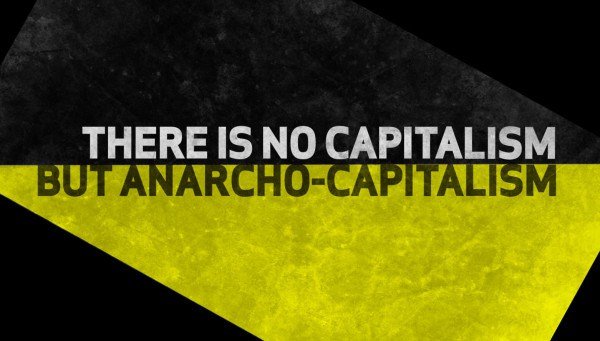The basic idea behind Bit-coin is to use a combination of public-key cryptography and peer-to-peer networking to create a virtual analogy of gold, that is to say, a substance that is scarce (if not absolutely finite) and fungible.
Bitcoin is an expression of extreme technological libertarianism. This school of thought goes by many names: anarcho-capitalism (or ancap for short), libertarian anarchy, market anarchism. Central to the philosophy is a distrust of states in favor of individuals. Its adherents believe society best facilitates individual will in a free-market economy driven by individual property owners—not governments or corporations—engaging in free trade of that private property. Anarcho-capitalism might seem fringe and unfamiliar to most people, but at least it helps explain the rationale behind crypto-currency and block-chain. Unfortunately, those topics become even more confusing when Bit-coin and its kin get used in ways incompatible with their original inspiration—which turns out to be most of the time.

The ancap worldview only supports sovereign individuals engaging in free-market exchange. Neither states nor corporations are acceptable intermediaries. That leaves a sparsely set table. At it: individuals, the property they own, the contracts into which they enter to exchange that property, and a market to facilitate that exchange. All that’s missing is a means to process exchanges in that market. Ordinarily, money would be sufficient. But currency troubles market anarchists. The central banks that control the money supply are entities of the state. Financial payment networks like Visa are corporations, which aren’t much better. That’s where Bit-coin and other crypto-currencies enter the picture. They attempt to provide a technological alternative to currency and banking that would avoid tainting the pure individualism of the ancap ideal.This makes Bit-coin’s design different from other technology-facilitated payment systems, like PayPal or Apple Pay. Those services just provide a more convenient computer interface to bank accounts and payment cards.
Antagonist of the Block-chain system, have argued that for the Block-chain system to work in earnest, it would need to divorce transactions entirely from the traditional monetary system and the organizations that run it. Central banks and corporations could interfere with transactions. And yet, if individuals alone maintained currency records, money could be used fraudulently, or fabricated from thin air which is the fear of many and the reason the some governments have refused to accept the Block-chain System and Crypto-currency technology. The anonymous nature of Bit-coin means that it can also be used for illegal purchases - such as buying and selling drugs or weaponry.
I however argue that to solve these problems Bit-coin is backed by mathematics instead of state governments. The key to the success of Bit-coin is something called the block-chain. The Bit-coin “block-chain” is a shared, digital record of all the transactions (or “blocks”) that have ever been exchanged. Every transaction contains a cryptographic record of the previous succession (the “chain”) of exchanges. Each one can thus be mathematically verified to be valid. The community of Bit-coin users does the work of verification. To incentivize the onerous work of cryptographically verifying each transaction in the chain that precedes it, the protocol awards a bounty—in Bit-coin of course—to the first user to validate a new transaction on the network. This is the process known as “mining”- a term considered by antagonist of the Block-chain technology as a confusing and aspirational name for what amounts to computational accounting.
The block-chain is a means of solving the double-spending problem: which is that because the currency is digital, it is open to being copied and spent more than once - something banks stop with physical currency. However, the block-chain acts as a digital ledger, whereby every single transaction (called a block) is securely linked together using cryptography and encryption. It's verifiable, available to everyone who owns Bit-coin and is immune to fraud and hacking - unlike centralized banks. It enables one digital wallet (that can be stored on a phone) to directly connect with another securely and process a transaction. As such, it removes the need for any kind of traditional bank or regulator. Imagine this: My car, which is already mostly a computer, enters an agreement to lease time from a parking lot, which is managed by another computer. It “signs” this contract just by entering the lot and occupying a parking space. In exchange, the car transfers a small amount of Bitcoin, the currency of choice for computers, into the parking lot’s wallet. Awesome right! But unsurprisingly, banks aren't happy about being made obsolete and with help from governments some Central Banks are trying to clamp down on Crypto-currencies after initially dismissing them out of hand.

Hi! I am a robot. I just upvoted you! I found similar content that readers might be interested in:
https://www.theatlantic.com/technology/archive/2017/05/blockchain-of-command/528543/